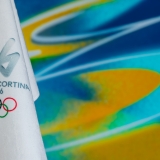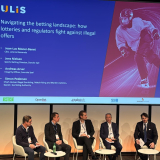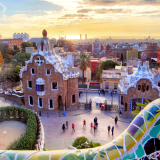
Social integration of refugees through sport: EL teams up with strong partners in a pan-European project
The Project ASPIRE (Activities, Sport & Play for the Integration of Refugees in Europe), led by the European Non-Governmental Organisation (ENGSO) and co-funded by the European Commission, through its ERASMUS+ programme, was inaugurated on 8-9 February in Brussels. Beyond the European Lotteries (EL), the project comprises a very strong network of partners, including the International Center of Sports Science and Physical Education (ICSSPE), the Council of Europe (CoE), the European Observatory on Sport and Employment (EOSE) and a good number of national sport partners.
The Project ASPIRE (Activities, Sport & Play for the Integration of Refugees in Europe), led by the European Non-Governmental Organisation (ENGSO) and co-funded by the European Commission, through its ERASMUS+ programme, was inaugurated on 8-9 February in Brussels. Beyond the European Lotteries (EL), the project comprises a very strong network of partners, including the International Center of Sports Science and Physical Education (ICSSPE), the Council of Europe (CoE), the European Observatory on Sport and Employment (EOSE) and a good number of national sport partners.
Commenting on the kick-off of the ASPIRE project, EL President, Hansjörg Höltkemeier noted: “Commitment to society has always been a cornerstone of our model. As European Lotteries, we are deeply concerned by the current refugees’ crisis and we believe that sport and play activities constitute an excellent tool for the social integration, empowerment and trauma relief of refugees. We are positive that the ASPIRE project will have a lasting societal impact and EL is looking forward to be actively involved in this significant initiative.”
The ASPIRE project will start with research on relevant best practices in order to ground the development of further project activities on underpinning evidence. The research will lead to the creation of a handbook and a training module, which will be disseminated in the second phase of the project through national trainings in the countries of the project partners. The project will finish with the organisation of a Pan-European event for further dissemination of the project outcomes.






